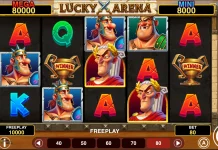
Light & Wonder‘s motion to dismiss a copyright case put forward by Aristocrat Gaming has been partially accepted by the courts, while other areas of the dismissal have been denied.
Documents filed in the US District Court for the District of Nevada revealed Aristocrat is suing Light & Wonder over claims of copyright infringement, trade secret misappropriation, deceptive trade practices, trade dress infringement and unfair competition.
It centres around the game Dragon Link, with Aristocrat making claims that Light & Wonder pursued a campaign to copy Dragon Link in its Jewel of the Dragon game through the hiring of the supplier’s old executives and game designers.
The original file put forward by Aristocrat claimed: “Jewel of the Dragon was a cheap knock-off. Despite copying the graphics, sounds and trade dress of Dragon Link, and despite including similar game features as Dragon Link, Jewel of the Dragon failed to capture the unique player experience created by the underlying Dragon Link maths.”
The court underlined that it required further detail on trade dress infringement and thus dismissed the claim, the court also dismissed the claim of deceptive trade practices.
The motion to deny the copyright infringement was, however, denied, in spite of Light & Wonder claiming the plaintiff did not attempt to identify specific infringements.
Similarly, the dismissal of the trade secret misappropriation claim was denied, with the court finding that Aristocrat’s allegations ‘satisfy the pleading requirements of Rule 8(a). The complaint explains that the success of Aristocrat’s games is due to their complex and confidential maths, functionality and source code.’
One aspect of the Light & Wonder defence was the use of red and gold colouring in the game, which Light & Wonder emphasised stands for good luck and prosperity in Chinese culture. Light & Wonder highlighted this element of the case using screenshots.
Nonetheless, Aristocrat does oppose judicial notice of images from L&W’s Jewel of the Dragon games, as well as the use of the red screenshots depicting the meaning of red and gold in Chinese culture.
Aristocrat also questioned the legitimacy of the screenshots and whether they reflect the current version of the game. The court upheld Aristocrat’s complaints over the screenshots and won’t progress with utilising these screenshots as evidence. However, copyright and trademark registrations will be pursued by the court off the back of the decision.
An Aristocrat spokesperson also responded to the case by stating: “Aristocrat is pleased the court has upheld a number of its substantive claims in this ruling and will continue to strongly protect its IP.”
Previously, Light & Wonder had reacted with animosity towards the original filing: “Aristocrat’s US lawsuit is the latest instalment in its continued international campaign to undermine the release of L&W’s innovative competing products.
“Rather than competing on an even playing field in the market, Aristocrat has contrived baseless legal claims in multiple jurisdictions coinciding with the release of L&W’s products in an effort to tarnish L&W’s product rollouts and drive customers away.”













